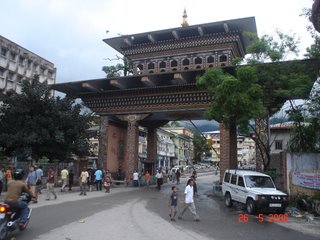by Rajesh Rai
Phuentsholing: Bhutanese exporting cardamoms to India are desperate for a government intervention.
After the Goods and Services Tax (GST) impose since July 1 last year, Indian customs offices have implemented the computerised system called ICEGATE in Indian towns that share a border with Bhutan and are significant trade links.
The ICEGATE system asks exporters clearance certificates from Food Safety and Standards Authority of India (FSSAI) and Plant Quarantine Services of India (PQSI). FSSAI has been managed but the quarantine clearance has not been obtained so far.
PQSI does not issue this clearance for Bhutan and it also does not recognise Bhutan Agriculture and Food Regulatory (BAFRA) certification the exporters get in Bhutan.
The issue has also been raised in several meetings in Phuentsholing in the past but there have been no measures taken.
Initially, the system was not installed in Samtse and Bhutanese exporters took their produce to the place to export it to India despite the implication of transportation costs. All the border areas now have the system.
Without quarantine clearance, Bhutanese cardamom demand has decreased, thus, affecting the price.
Cardamom fetched prices between Nu 700 and Nu 800 per kilo (kg) in 2017 but today the price has plummeted to Nu 450 to Nu 480.
Exporters say cardamom exported to India today is also done “informally” and it has affected the price further.
Although exporters still managed to export “informally,” a manager with Bhutan Export Business Line (BEBL), Yeshey Wangchuk, in Phuentsholing said their buyers in Siliguri faced problems related to GST.
“Our buyers have to show where the cardamoms are being imported from,” he said. “If we cannot export it legally the rates would further dip.”
When cardamom cannot be exported legally, farmers are at the losing end, as the prices keep on dropping due to low demand, Yeshey Wangchuk said. “The situation is same with cardamom traders in Gelephu.”
After the GST regime was commenced, the customs office across the border in Jaigoan has stopped recognising the certification from BAFRA and asked the exporters to get certification for every single consignment from Kolkata, India.
Meanwhile, the Indian agriculture ministry had notified in 2003 list of entry points for import of plants and plant materials under Schedule-I and this does not include any of the exit points from Bhutan to India. Jaigaon for Phuentsholing, Chamurchi for Samtse, Daranga for Samdrupjongkhar and Dadgari for Gelephu are not listed and recognised under PQSI.
Schedule-VII of the same notification also states that the large cardamom is in the list of plant and plant materials under which imports are permissible on the basis of phytosanitary certificate issued by the country. But BAFRA certificate is not recognised by ICEGATE.
Joint managing director of RSA private limited in Phuentsholing, who is also a cardamom exporter, Singye Namgyel Dorji, said they had written about the situation to the ministry of economic affairs.
“The biggest problem today is that we cannot legally export to India,” he said, adding that the buyers don’t want to buy from Bhutan because Bhutanese cannot produce the quarantine certificate that is used to pass the GST system.
Considering the problem of not having the document, buyers will buy only if the price was really low, Singye Namgyel Dorji said. “In the long run, it would be better to have BAFRA link with PQSI so that its certificate would be recognised.”
For a short-term measure, the RSA joint managing director said that those Indo-Bhutan towns should be added in the list of the 2003 notification. “Jaigaon, Chamurchi, Daranga and Dadgari should be included in the list, after which the PQSI can do the quarantine.”
RSA had proposed this to the interim government this September.
Earlier this month, some exporters also had told Kuensel that it was the middlemen who work for some Bhutanese exporters that syndicated and manipulated the price.
Singye Namgyel Dorji, however, said it is not true.
“Each farmer cannot tie up with exporters,” he said, explaining farmers need to go through middlemen who buy and aggregate the cardamom in mass. “They then give us the cardamom.”
Since the middlemen, who are individuals from across the border, cannot export owing to several documentations, RSA buys from them.
Rajesh Rai | Phuentsholing

